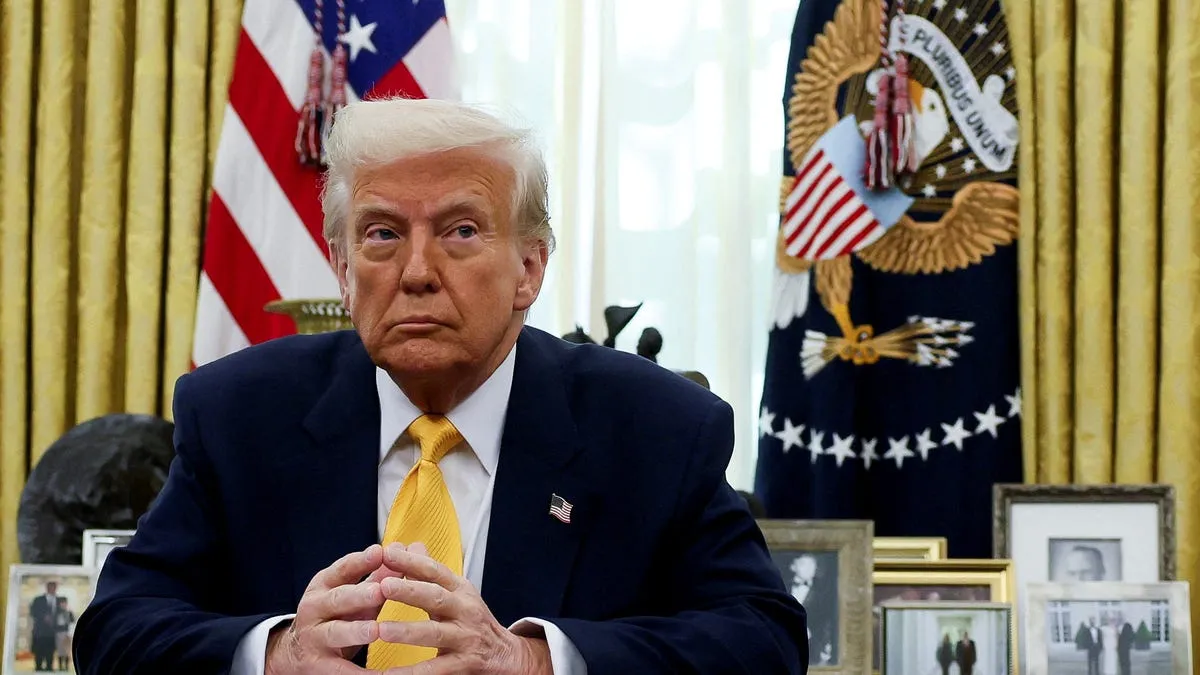
This past week has witnessed a flurry of updates concerning tariff orders from Washington, particularly following the expiration of President Donald Trump’s month-long delay on tariffs against imports from Canada and Mexico. In February, Trump announced a significant 25% tariff on goods imported from these key trade partners. After engaging in discussions with their leaders, who assured increased cooperation on border security, Trump postponed the tariffs for a month. Meanwhile, China has been subject to 10% tariffs since that time.
As the 30-day delay came to an end, the new tariffs became effective shortly after midnight on Tuesday. This development led to a dip in stock markets, prompting Canada to announce its own retaliatory tariffs. Throughout the week, Trump gradually retracted some of the proposed regulations, indicating the complexities of trade relations. Tariffs essentially act as taxes on imported goods, and economists largely agree that such costs are ultimately transferred to consumers, which can lead to a sluggish economy.
As of Friday, the situation regarding tariffs on imports from Canada, Mexico, and China remains fluid. Trump confirmed on Monday that the 25% tariffs on imports from both Mexico and Canada would commence immediately. “No room left for Mexico or Canada,” Trump stated emphatically. “The tariffs – they are all set. They’re going into effect tomorrow.” In response, Canada swiftly enacted retaliatory tariffs, with Ontario's leadership even suggesting a halt on electricity exports to three U.S. states if the tariffs continued.
On Thursday, Trump revealed that a portion of goods covered by the United States-Mexico-Canada Agreement (USMCA) would be exempt from the new tariffs for at least another month. This exemption covers approximately 38% of imports from Canada and 50% from Mexico. Notably, Canadian energy resources and potash, a fertilizer ingredient, will now face a reduced tariff rate of 10%.
During a press briefing in the Oval Office on Friday, Trump hinted at potential reciprocal tariffs on lumber and dairy imports from Canada, suggesting that these could be implemented as soon as Friday, Monday, or Tuesday, according to reports from Reuters. This ongoing back-and-forth raises questions about the implications of these tariffs on U.S.-Canada relations.
In a significant development, the White House announced on Wednesday that automobiles would be exempt from the newly introduced tariffs. This decision came after intense lobbying from major automotive companies, including General Motors, Ford, and Stellantis, who expressed strong opposition to the tariffs. According to White House press secretary Karoline Leavitt, the tariffs, along with those under other exemptions, will take effect on April 2.
In addition to the tariffs affecting Canada and Mexico, China remains under considerable pressure, as Trump imposed 10% tariffs on Chinese imports earlier this year. Recently, he announced plans to double these tariffs to 20%. Trump has justified these tariffs as a strategy to compel China to assist in curbing the flow of illegal drugs, particularly fentanyl, into the United States.
China's commerce secretary has urged the U.S. to reconsider its tariffs, labeling the imposition of 20% tariffs on Chinese products as “groundless” and a reflection of typical protectionist and unilateral practices. The spokesperson emphasized the need for the U.S. to cease “shifting blame” regarding the ongoing fentanyl crisis.
As the situation evolves, it is clear that the dynamics of international trade, especially regarding tariffs, remain complex and subject to rapid changes, impacting economies and relations on both sides of the border.
For more updates on tariffs and international trade relations, stay tuned.